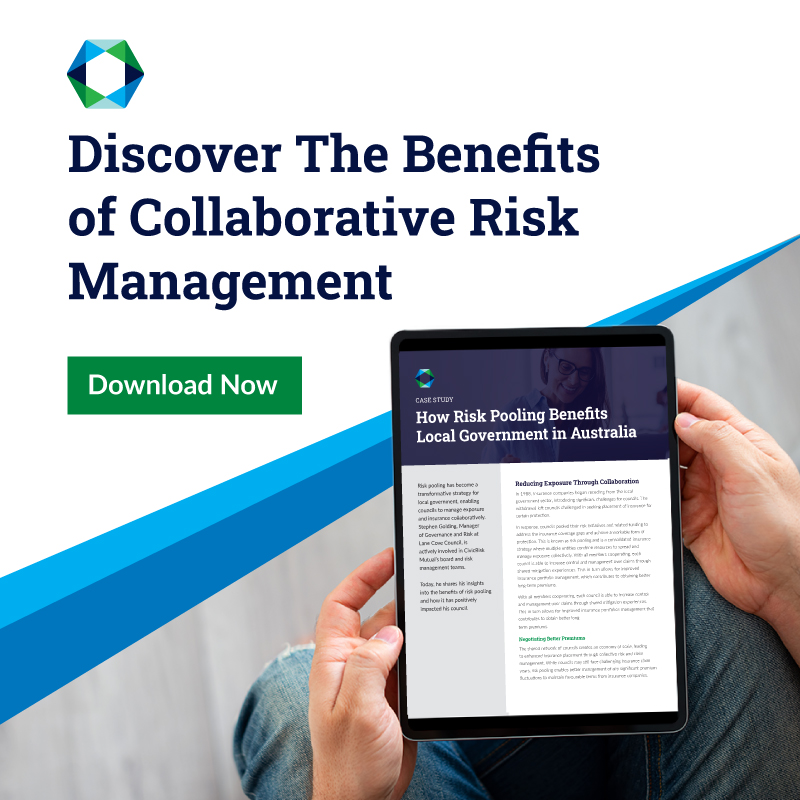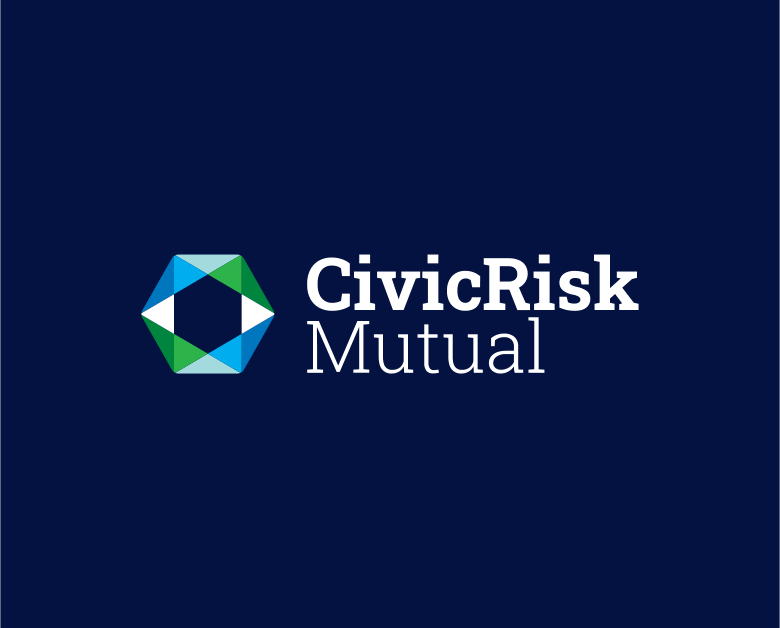Ongoing training and education can reduce risk for council employees. Through continuous learning and growth, staff remain updated with the latest best practices to navigate potential risks and demonstrate leadership in addressing them.
Investing in systematic training strengthens individual competencies and builds a resilient, cohesive team ready to safeguard the community and ensure its long-term stability. Here are five ways professional growth opportunities enhance your risk resilience.
1. Stay Updated With Best Practices
With each success and failure — no matter how big or small — we build upon our understanding of risk mitigation. Staying ahead of the latest trends and best practices encourages staff to identify and stabilise vulnerabilities as they arise.
Between GIPA and information access, DPIE flood modelling and the Modern Slavery Act (NSW), the dynamic landscape of emerging risk exposure is constantly shifting. Councils’ engagement with and responsibility to communities requires foresight and responsive leadership to keep on top of challenges.
You can position your council at a higher vantage point to integrate the latest best practices and controls through CivicRisk Mutual’s Risk and Claims training sessions. Here, we discuss surfacing threats, trending claims and protection program advice from experts with long-standing experience in their fields.
2. Build a Risk-Aware Culture
A risk-aware culture recognises and diligently manages potential threats across council operations. Workplace training equips staff with the skills and knowledge to drive a shared understanding of risk-conscious principles. Key competencies that contribute to a culture of awareness are:
- Identifying and assessing vulnerabilities across a variety of settings to determine likeliness, severity and potential outcomes.
- Communicating clearly and to the right people about potential threats.
- Critical thinking to analyse the risk and develop mitigation strategies.
- Problem-solving and implementing effective solutions.
- Decision-making to ensure choices align with risk assessments and the council’s strategic goals.
At the individual level, developing these skills empowers each team member with a voice that contributes to a safer workplace and community. At a collective level, awareness and shared accountability encourage employees to identify, assess and mitigate threats anywhere, anytime. This builds a team that can effectively handle uncertainties.
To reinforce your culture of awareness, check out our Bespoke onsite training opportunities covering areas such as planning and certification, crime and professional indemnity. Alternatively, navigate towards the risk management resources and training presentations accessible in the Member portal to share among council staff.
3. Address Specific Risk Management Needs
Depending on the needs of your council and employees’ certification levels, targeted training programs fortify the pillars of your resilience. Assess the competencies across individuals and teams to determine strengths and address knowledge gaps.
Specialised training programs equip staff with the skillset needed to perform their roles competently. Competence, in this sense, does not speak to their ability to do their job, but rather proactively identify potential areas of compromised risk resilience and take action to mitigate them.
Areas for specialised development include:
- Crisis Management and Contingency Planning: Develops the ability to prepare for and respond to emergencies, including natural disasters, public health crises and more.
- Financial Risk Management: Empowers those handling financial operations with the knowledge to mitigate risk related to budget shortfalls, revenue fluctuations and fiscal mismanagement.
- Cybersecurity and Data Protection: Addresses threats associated with information theft, denied access to critical technology or even hijacking systems for profit or malicious intent. In New South Wales, 50 councils are yet to implement cyber security governance frameworks and internal controls. This indicates a clear gap, which, left unaddressed, could lead to dire outcomes for communities and infrastructure.
- Reputational Management: Protects and enhances the council’s reputation alongside community trust by managing public perception, media relations and stakeholder engagement.
Can you identify specific areas where individuals or teams have space for further development? Through the Study Assistance Funding Grant Program, the Mutual offers up to $5,000 in grants to support members with external risk mitigation studies.


4. Foster Leadership
Strong leaders possess the foresight to anticipate potential threats and devise strategic responses. They create an environment where proactive risk management is a priority. By investing in ongoing training, councils cultivate leaders who inspire confidence and guide their teams through complex challenges.
Leadership training promotes ethical standards and encourages transparent communication for staff at all levels. Mentorship programs are a great way to support new employees in grasping the intricacies of risk while nurturing leadership and accountability among middle management and team members. When all staff feel empowered in their collective responsibility, they’ll make smart choices to protect the council and its stakeholders.
Teams that demonstrate a commitment to risk management set a tone for the entire council, stimulating a culture where dangers are identified and actively managed.
5. Networking and Collaboration
Ongoing training and development opportunities like courses and conferences progress council employees through networking and collaboration. These events encourage your team to connect with peers from different regions and backgrounds, bringing fresh perspectives into your council.
Collaboration with risk management experts and industry specialists broadens understanding of potential dangers and innovative mitigation strategies. External professionals can offer insights into emerging threats and best practices, enhancing the council’s overall management capabilities.
When staff build relationships with local businesses, community groups and other stakeholders, risk mitigation efforts become community-wide rather than confined to council operations. Moreover, joint initiatives with other local councils produce comprehensive strategies that are more effective than isolated efforts. Risk pooling is just one example of how our members fortify their resilience collaboratively.
As a member, your council’s risk manager has an annual membership to the Risk Management Institute of Australia (RIMA) and can receive funding to attend the annual conference to support networking and development initiatives. Members are also encouraged to attend CivicRisk Mutual’s annual Members’ Forum, connect with other local councils and contribute to our strategy.
Develop Leaders to Enhance Risk Resilience
Professional development comes in all shapes and forms. Through certifications, group training and networking, you can support risk management leadership across all levels at your council and reduce exposure.
CivicRisk Mutual continuously aims to develop accountability and resilience to support our members as they support their communities. All development opportunities and training mentioned in this article are accessible through our website. If you’d like to learn more about how we can strengthen your risk management efforts together, get in touch with our team today.


